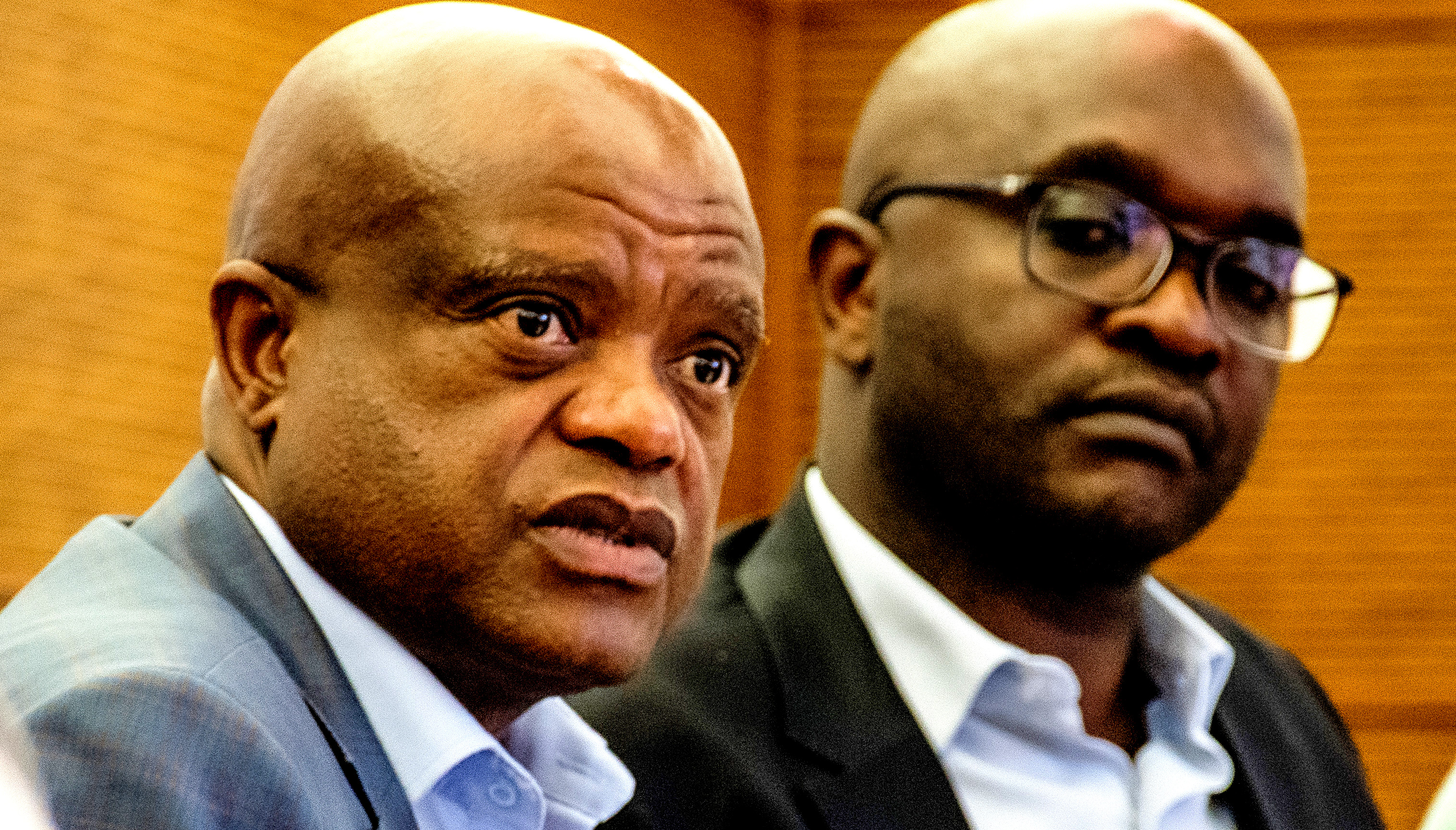At a meeting on Monday afternoon, led by Johannesburg Mayor Dada Morero at Joburg Water’s head office in Newtown, Joburg Water and the city highlighted their turnaround strategy, which includes ring-fencing revenues from water sales for the water function, while highlighting their significant backlog in infrastructure upgrade costs.
#HappeningNow
The Executive Mayor of the City of Johannesburg, Mr. Sello Dada Morero, is leading crucial discussions with the Johannesburg Chamber of Commerce and Industry (JCCI) to address and collaborate with business on the City's ongoing water challenges.
^PM pic.twitter.com/cPr0UsWClF
— Johannesburg Water (@JHBWater) December 9, 2024
At the end of the 2023/24 financial year, Joburg Water’s non-revenue water (NRW) was at a staggering 46% in the City of Johannesburg.
NRW is water that is produced and treated by a water utility, but is not paid for or used – so for example, for every 100 litres of water that Joburg Water buys from Rand Water, the utility is unable to recoup revenue on 46 litres.
It includes physical losses (like leaks and pipe bursts) and commercial losses (which include billing errors, meter inaccuracies and unauthorised consumption like theft or unmetered connections).
In the last audit, physical losses accounted for nearly 25% of the 46% of NRW, with commercial loss at 9.7% and authorised unbilled consumption at 11.7%.
To address these challenges, Joburg Water has implemented a five-year Water Conservation and Water Demand Management Strategy. This plan includes repairing leaking reservoirs, upgrading zonal bulk meters, improving pressure management, enforcing by-laws and replacing old pipes and valves. The strategy aims to reduce water demand by 37,123ML annually.
R27bn infrastructure backlog
At Monday’s meeting, Joburg Water highlighted that its infrastructure assets had a current replacement value of R125-billion.
According to the utility’s Asset Management Plan, 2% of this value should be renewed each year to maintain system functionality.
However, due to a lack of funding, only 0.9% is being renewed annually. This funding gap has resulted in a R27-billion backlog in upgrading and replacing essential infrastructure, with a significant portion of assets – those with a remaining lifespan of just 0 to 2 years – requiring immediate attention.
Notably, 26% of Johannesburg Water’s infrastructure is expected to reach the end of its lifespan within the next decade. This means that Johannesburg Water needs to invest an estimated R3.1-billion annually over the next 10 years to replace and upgrade infrastructure – but current funding levels fall far short of this requirement.
Turnaround strategy – ringfencing revenue
As Daily Maverick has previously reported, the Johannesburg City Council recently approved a turnaround strategy for Joburg Water, which forms part of the National Treasury’s Trading Services Reforms for metropolitan municipalities, which incentivises metros that implement such changes with additional capital budget allocations.
Morero has also proposed public-private partnerships to bolster funding for maintenance and upgrades.
Part of the strategy includes ring-fencing revenues from the sale of water for the water function, as well as creating single-point accountability for the water function in the city.
According to Joburg Water’s latest business plan, the turnaround strategy means that it has full accountability for revenue billing for all its customers.
The transition to managing the entire revenue value chain will begin by December 2024, with Joburg Water taking more than 30% of customers, accounting for 50% of its revenue, including all industrial and commercial clients. Once fully implemented, the strategy aims to significantly improve cash collection with a projected increase from 80% in the 2023/24 financial year to 95% by 2028/29.
Additionally, Johannesburg Water plans to secure equitable funding for free basic water and sanitation services and establish a multiyear financial agreement with the City of Johannesburg by mid-2024.
Under traditional municipal funding structures, revenue from water services – as with rates, electricity and solid waste – has been pooled into the city’s general budget and allocated across various services. This approach often left Johannesburg Water underfunded, limiting its ability to repair or replace critical infrastructure.
In a media briefing two weeks ago, Joburg Water managing director Ntshavheni Mukwevho explained that under this new strategy, “the National Treasury has issued a directive, which says that the water business needs to be treated differently in the metros, in such a way that the resources that are generated from the water business in metros, need to be invested back in the water infrastructure.”
So going forward, Mukwevho said that the resources that are generated from the sales of water services are going to be ring-fenced with the aim that a good portion of it gets invested back into water.
He explained that this initiative aims to achieve two key goals: first, to increase capital investment and funding for maintenance in Johannesburg, and second, to access incentives from the National Treasury.
Under the trading reforms, municipalities that implement these changes will receive incentives in the form of additional capital budget allocations, which can then be used to improve local infrastructure.
Mukwevho said that in the next two years, they need to move from their historical capital expenditure (CapEx) budget (to upgrade infrastructure) of R1-billion, to R3-billion (by 2025/2026) which is required to ensure Joburg Water’s infrastructure is performing, and performing correctly.
Traditionally, Joburg Water’s finances were controlled by the City of Joburg council, and the R1-billion budget for CapEx was given by the city from the surplus/profit Joburg Water made.
For example, in the 2023/2024 financial year, Joburg Water made R17.1-billion in revenue – from water sales and sanitation services that residents pay to Johannesburg Water – and a profit of R1.1-billion, which the city gave them for CapEx.
But Mukwevho explained to Daily Maverick that now with ring-fencing in place, the entity will get control of its profits, so for example, it could leverage its R1-billion surplus to attract loans and expand its investment capacity. DM





